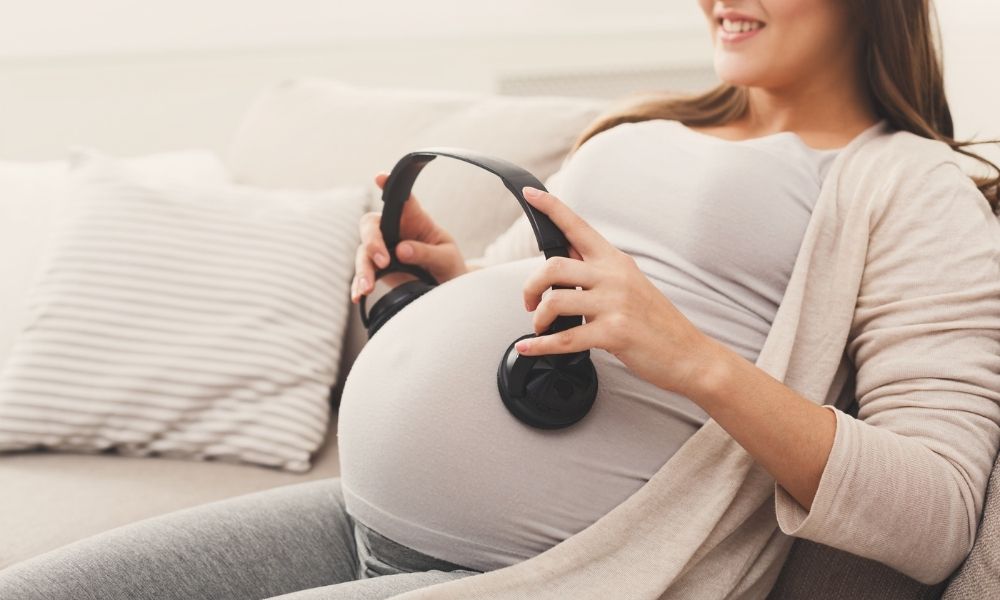Maternal mental health refers to the emotional and psychological well-being of women during pregnancy, childbirth, and the postpartum period. It’s a critical component of overall maternal health, yet it’s still widely misunderstood, under-discussed, and under-supported.
Why Maternal Mental Health Matters
Pregnancy and the postpartum period bring major changes—physically, hormonally, and emotionally. It’s normal for mothers to feel overwhelmed, anxious, or exhausted. But for some, these feelings go beyond the typical baby blues and become more serious mental health conditions.
The most common maternal mental health disorders include:
- Postpartum Depression (PPD): Affecting 1 in 7 women, PPD can cause intense sadness, irritability, difficulty bonding with the baby, and even thoughts of self-harm or harming the baby.
- Postpartum Anxiety (PPA): Often overlooked, anxiety can be just as debilitating as depression, leading to constant worry, panic attacks, and obsessive behaviours.
- Postpartum Psychosis: A rare but severe condition, marked by hallucinations, delusions, and paranoia, requiring immediate medical attention.
- Perinatal Mood and Anxiety Disorders (PMADs): A broader term that includes both prenatal and postpartum conditions.
When untreated, maternal mental health disorders can impact not just the mother, but also her child’s development, her relationships, and the entire family dynamic.
Breaking the Stigma
Many mothers suffer in silence due to stigma, shame, or fear of being judged. Society places enormous pressure on women to be“perfect” mums, which can prevent them from seeking help.
The truth is, maternal mental health issues are not a sign of weakness or failure—they are medical conditions that deserve care and compassion, just like any other health issue.
Signs to Watch For
It's important for new mothers—and those around them—to be aware of the signs that something may be wrong. These include:
- Persistent sadness, hopelessness, or crying
- Difficulty sleeping (unrelated to the baby’s schedule)
- Loss of interest in activities once enjoyed
- Feelings of worthlessness or guilt
- Excessive worry or intrusive thoughts
- Difficulty bonding with the baby
- Withdrawing from loved ones
If these symptoms last more than two weeks or interfere with daily functioning, it’s time to seek support.

A new survey of over 1,300* new and expectant mums from the BabyCentre community reveals that three out of four have experienced maternal mental health struggles. Yet many still suffer in silence, unsure if their feelings are valid or afraid of being judged.
· 78% Say UK Mental Health Support Falls Short After Birth
· 3 Out Of 4 Expectant and New Mums Have Experienced Mental Health Struggles
· Only 1 In 5 UK Mums Feel Supported by Healthcare System in Maternal Mental Health
· 7 in 10 UK Mums Are Sleep-Deprived and Struggling in Silence
Released in time for Maternal Mental Health Awareness Week, this research highlights the emotional burden shouldered by UK mums and the pressing need for improved mental health support within healthcare services and society as a whole.
While sleep deprivation (70%), financial concerns (45%) and loneliness (41%) were commonly reported, the most devastating finding is that 6 out of 10 mums are talking themselves out of seeking help, due to their ‘fear of being judged’. Nearly half admitted they didn’t ask for support because they believed their problems “weren’t serious enough’.
The Role of Social Media: Supportive or Stressful?
Unsurprisingly, social media plays a dominant and complex role in modern motherhood. 48% of respondents said it was a helpful source of advice and support, with 1 in 4 saying it connected them with other parents who ‘understood’, but by comparison, a quarter felt isolated by it.
The myth of the ‘perfect parent’ continues to take its toll. 37% of mothers said they feel under constant pressure to meet impossible standards - making it harder to admit vulnerability or ask for help.
On this topic, Registered Psychological Practitioner (HCPC), Dr Angharad Rudkin MA(Oxon) comments: “For many, scrolling through idealised snapshots of parenting - tidy homes, smiling babies, and flawless routines contribute to self-doubt and the sense that they aren’t ‘doing enough’. At the same time, online communities, support groups and the connectivity that social media presents, are a lifeline for others who found connection and reassurance in the shared realities of motherhood. It’s a double-edged sword of positivity versus negativity.”
The Hidden Challenges of Parenthood
When asked about the most difficult and least-discussed aspects of motherhood the biggest mental challenge is the loss of identity and independence (47%).
Additionally:
- 42% highlighted emotional outbursts and feelings of rage
- 39% said they felt like they had drifted apart from their partner, or don’t have time for their relationship anymore
- 39% shared fears around returning to work and balancing a career with parenting
This suggests that many of the biggest emotional challenges are still not openly acknowledged, leaving mothers feeling alone in their experience.
Support Still Falling Short?
When it comes to seeking professional help, many mothers say the support simply isn’t there when they need it most. Of those who had turned to the NHS or other healthcare services for maternal mental health support, just 22% felt properly supported. A resounding 78% said more needs to be done to meet the emotional and mental health needs of new and expectant mothers in the UK.
In addition, 54% said they feel a frequent pressure to appear as though they’re coping, even when they are not. Only 18% felt comfortable being honest about their struggles.
Conversations Around Loss Are Still Lacking
The survey also explored how mothers feel about the way pregnancy loss, especially miscarriage before 24 weeks, is discussed and supported. The results reveal a lingering stigma and a lack of clarity around workplace rights and emotional support.
32% said they believe miscarriage remains a taboo subject and a topic that’s still avoided, despite how common it is. For many, this silence adds to the emotional burden of grief.
A clear lack of awareness about employment rights was also apparent, with over half admitting they didn’t know their workplace’s policy on pregnancy loss, highlighting the need for clearer communication and consistent practices.
Significantly, 14% said most workplaces don’t offer enough time or support for grieving parents, with 19% believing that there should be statutory bereavement leave for pregnancy loss, regardless of how early in gestation it occurs. This reflects a growing call for recognition, empathy, and time to grieve, not just at a personal level but in law and workplace policy too.
Dr Angharad Rudkin MA(Oxon) notes: Maternal mental health struggles are incredibly common, yet too often met with silence, self-blame, or inadequate support. We must stop treating it as an exception and start seeing it as a normal and expected part of the transition to parenthood.
“What’s especially worrying is how many mothers are internalising their pain - believing it’s not ‘serious enough’ to justify help or fearing judgment if they speak up. This highlights a deeper cultural issue around perfectionism, stigma, and the unrealistic standards placed on women. We need to create an environment where emotional wellbeing is seen as important as physical recovery after birth: that asking for help is never mistaken as weakness but recognised as strength.”
Faye Mingo, Chief Growth Officer at BabyCentre, comments: “We hear from so many women who feel like they have to hold it all together – when behind the scenes, they're exhausted and overwhelmed. Overall, these figures highlight that many women are suffering quietly. It’s concerning that so many feel their distress isn’t valid enough to reach out for help. We need to normalise honesty over perfection and make sure every mum knows it’s okay to not be okay. Here at BabyCentre, we’re working hard to ensure we reflect real life and offer meaningful support across all our channels –this is something that’s really important to us as a brand. But there’s also a role we all have to play in supporting new parents, and that starts with creating space for openness and empathy.
BabyCentre is the UK’s leading pregnancy and parenting resource, trusted by thousands of new and expectant parents every month. From early pregnancy to life with a newborn, they offer expert advice, such as support for Anxiety in Pregnancy and Postnatal Depression. The supportive community of like-minded parents helps you feel informed, confident, and never alone. Download the free BabyCentre app for real answers, real support, and a place to connect every step of the way.
* Survey conducted independently by BabyCentre UK. Results are based on the responses of 1,373 new and expectant mothers in the UK, collected in April 2025.
All information we provide is for educational and awareness purposes only. Any concerns should be discussed with your GP, Midwife or Healthcare Professional.
If you’re trying to conceive (TTC), you probably know that there are certain foods and nutrients that become especially important once you’re pregnant. But nutrition plays a vital role even when trying to conceive, much like laying a strong foundation before constructing a house.
Certain nutrients create that foundation by supporting egg and sperm health (yes, nutrition matters for both partners), hormone balance and creating a hospitable environment for a fertilized egg to implant. In fact, studies show that certain nutrients can help increase fertility and improve success rates for both natural conception and fertility treatments.
In other words, nutrition is a key player in the TTC journey, but getting the right nutrients in the right quantities can be tricky. That’s where supplements come in. Just as you’d take a multivitamin to fill in nutritional gaps for optimal health, fertility supplements can give you that extra nutrient boost.
Choosing supplements for your fertility journey
When choosing a supplement to support your fertility journey, look for science-backed, high-quality ingredients. Our editors are careful to select and partner with brands that use ingredients that have been clinically studied to support fertility. Eu Natural® (pronounced you) covers all those bases and more. We love knowing that Eu Natural® products contain zero artificial additives, binders, or fillers and are lab-tested to ensure purity and potency.

When choosing a supplement to support your fertility journey, look for science-backed, high-quality ingredients. Our editors are careful to select and partner with brands that use ingredients that have been clinically studied to support fertility. Eu Natural® (pronounced you) covers all those bases and more. We love knowing that Eu Natural® products contain zero artificial additives, binders, or fillers and are lab-tested to ensure purity and potency.


%20copy.jpeg)

.jpg)

.png)
.jpg)


%20copy-min.jpeg)

